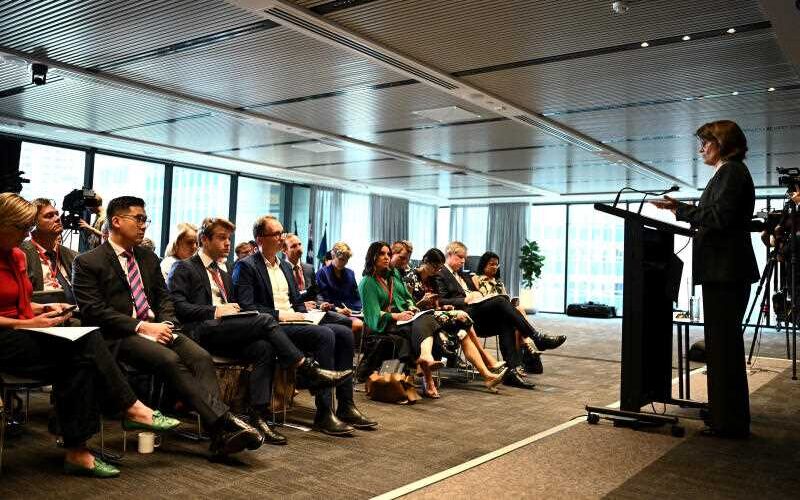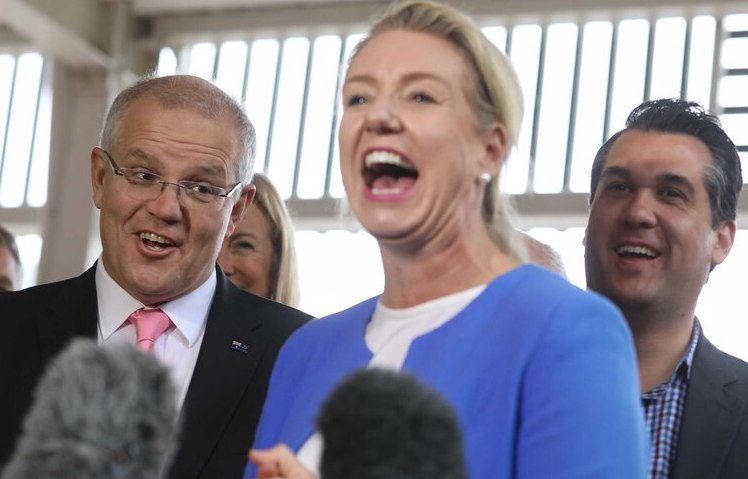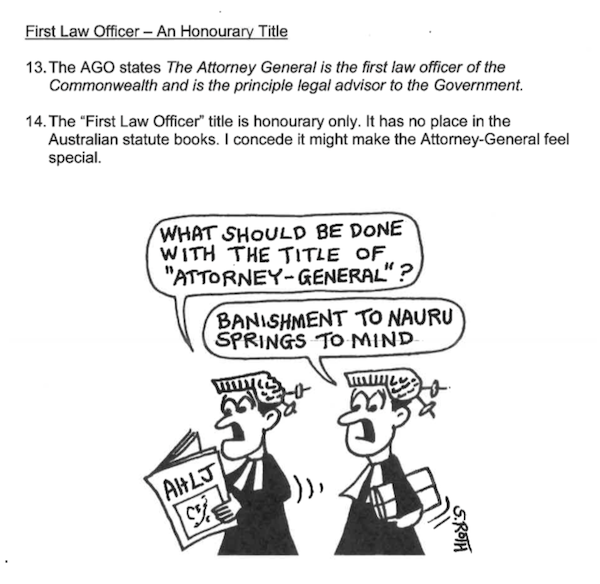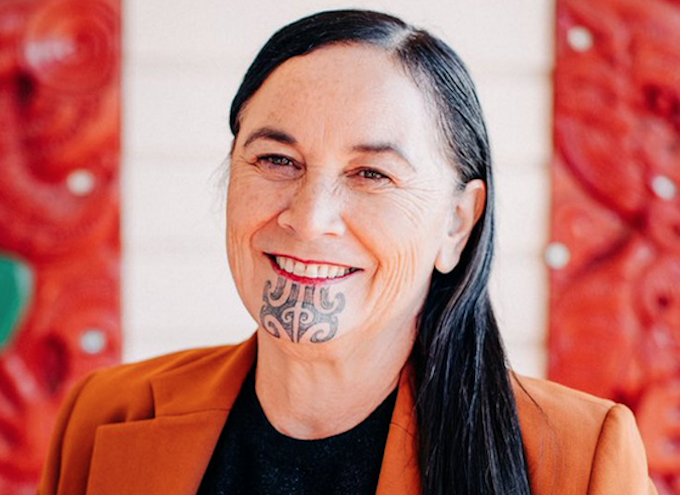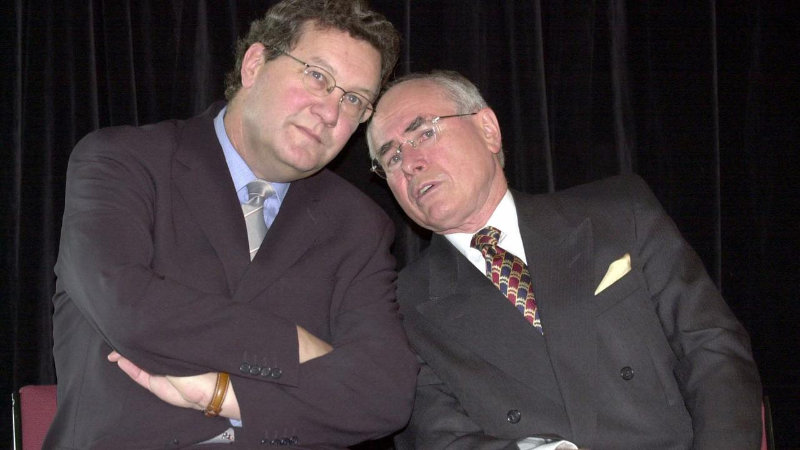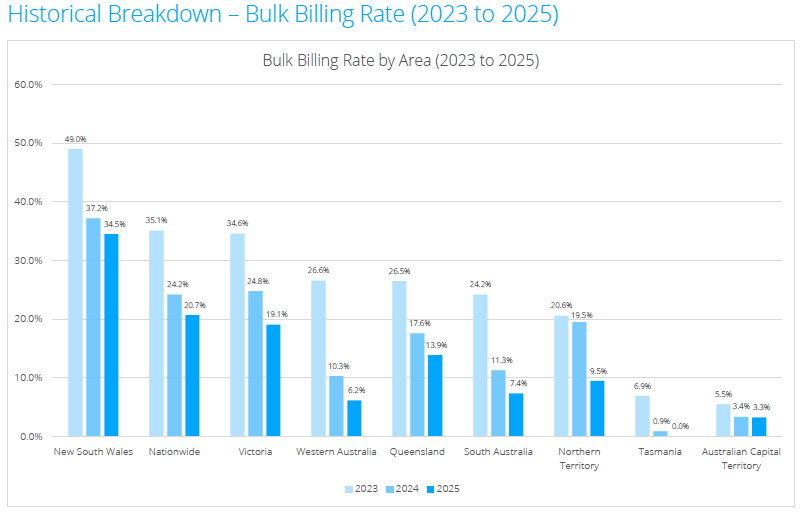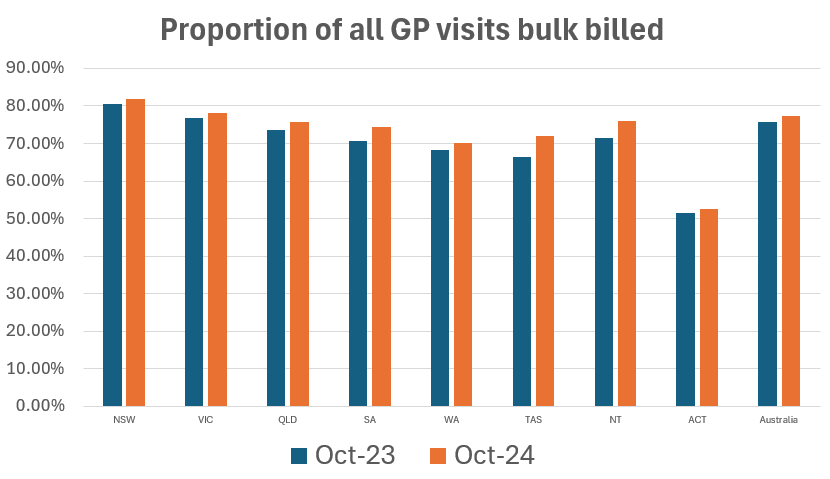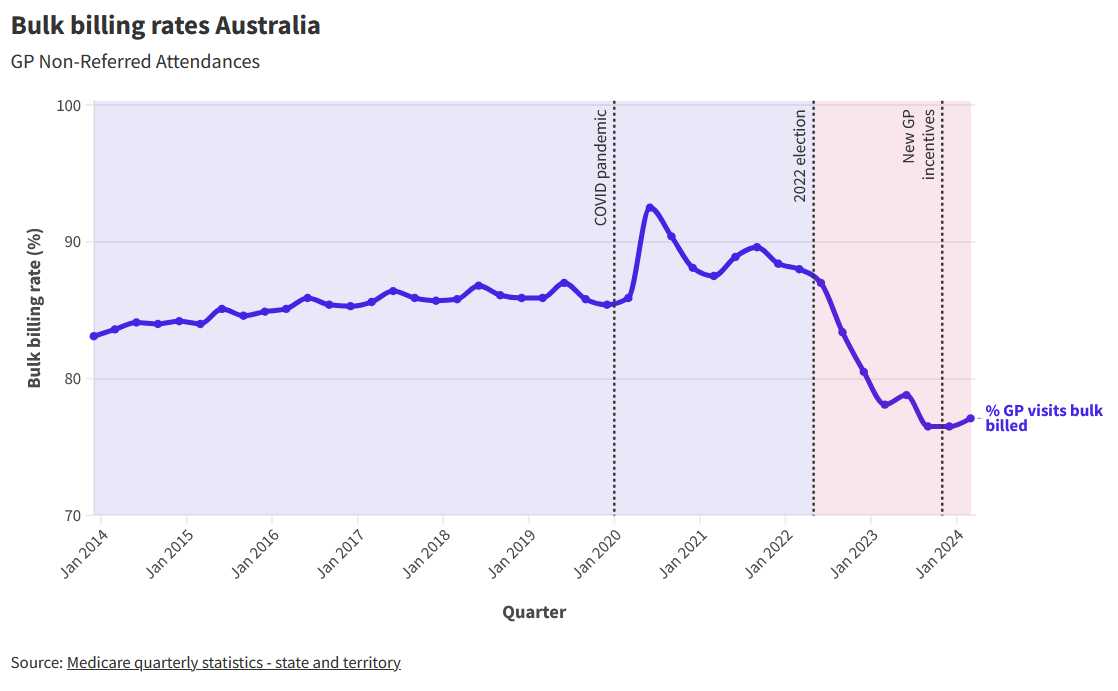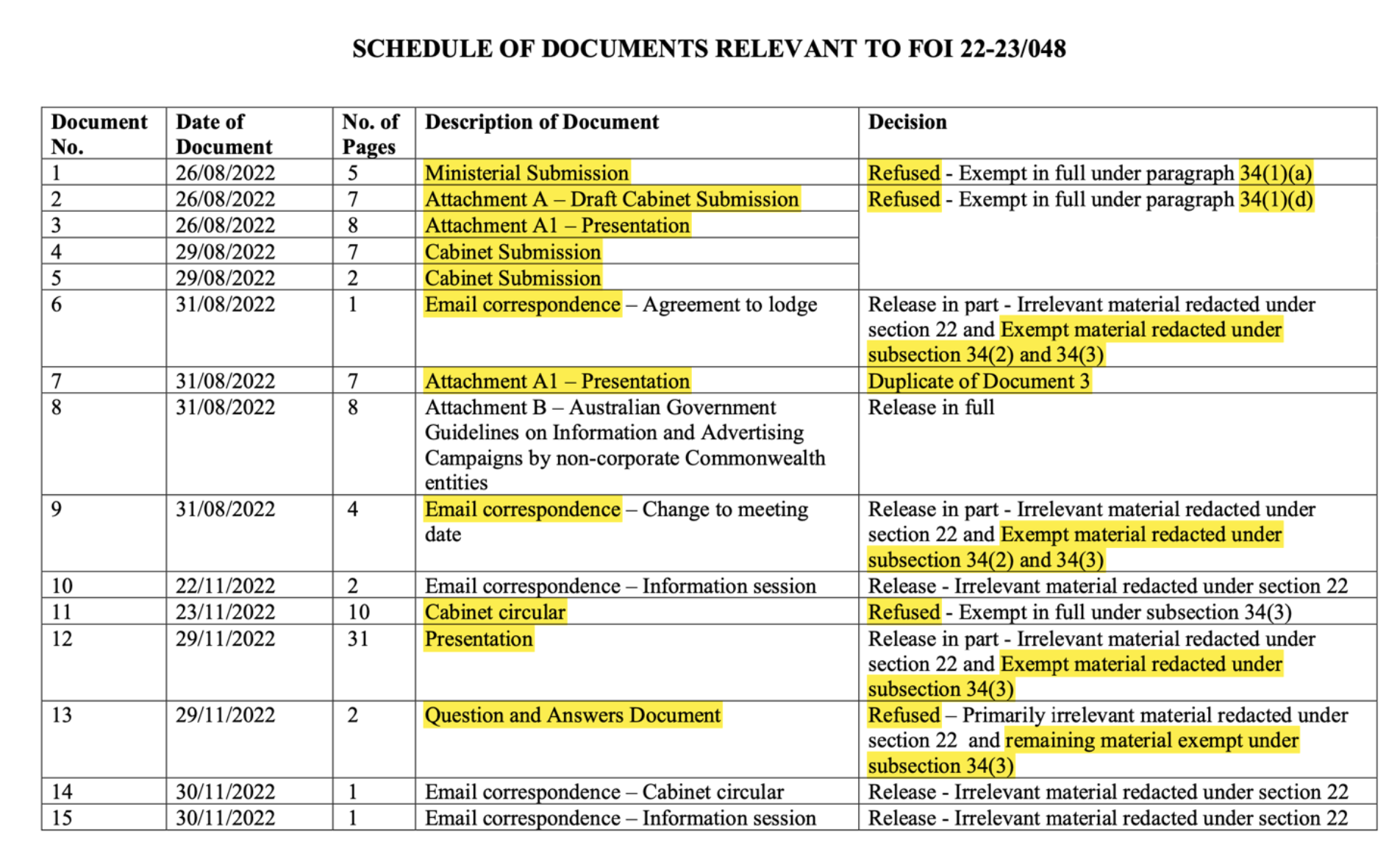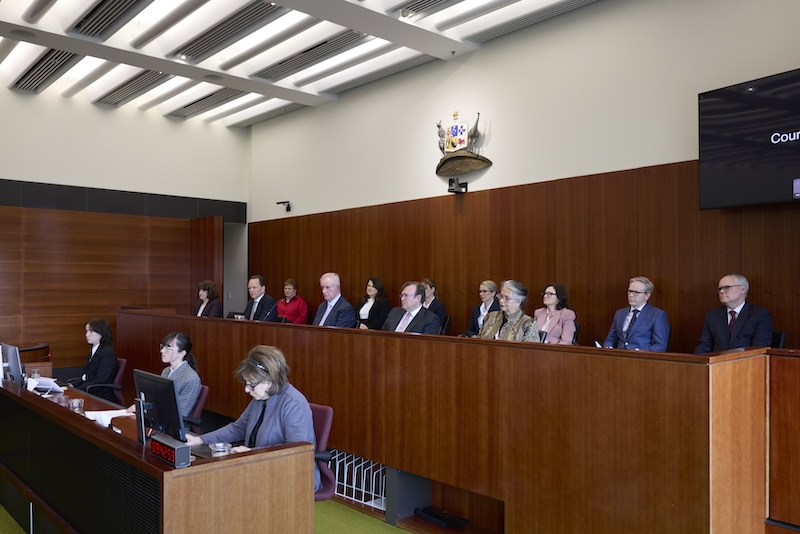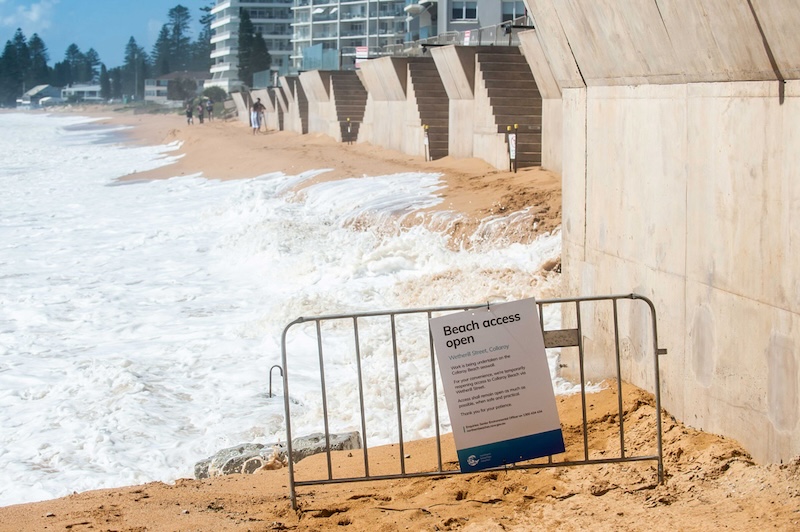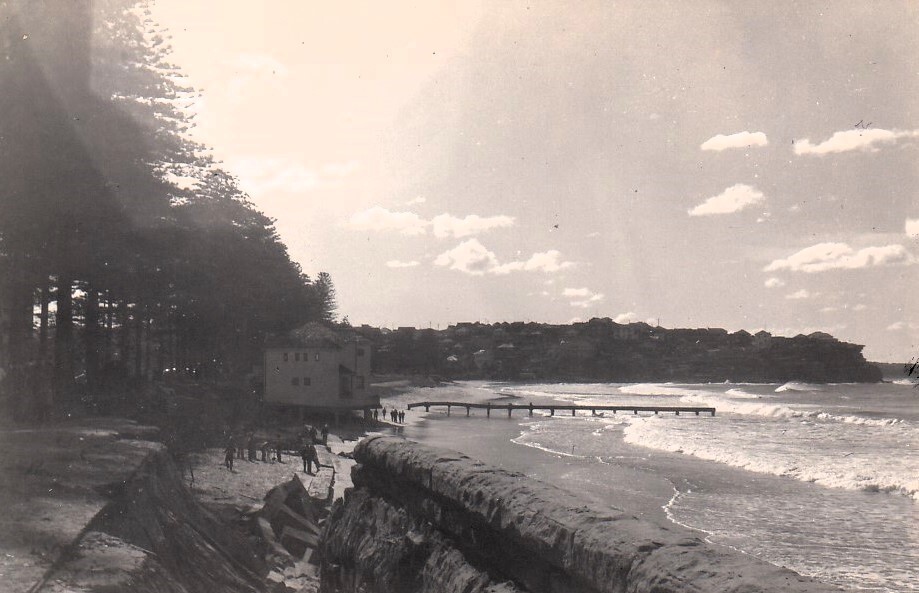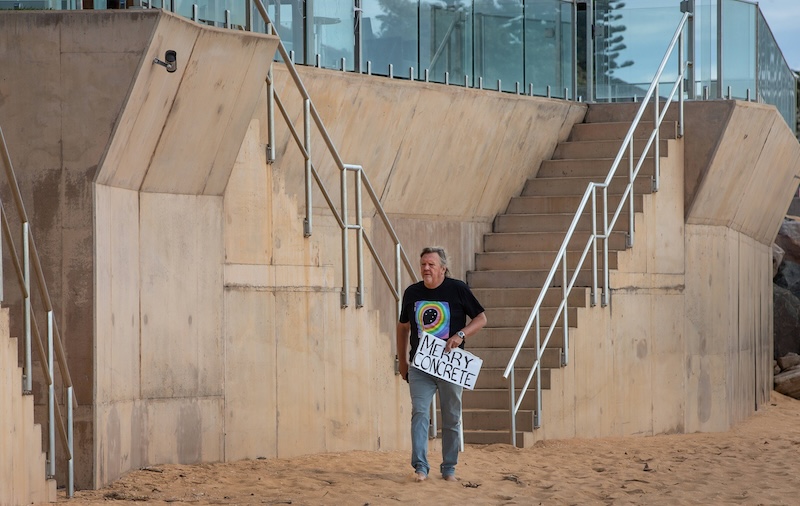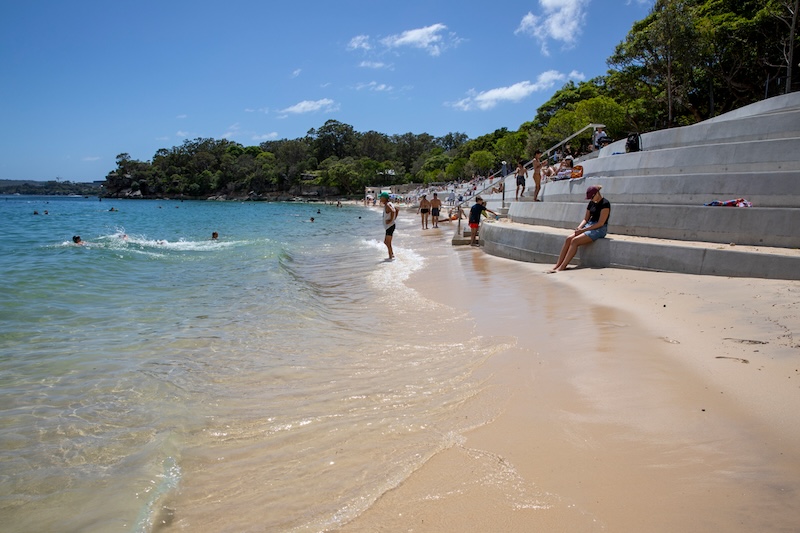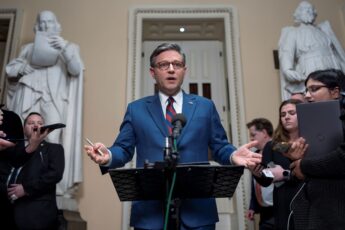
In a landmark Administrative Review Tribunal decision, public servants have been warned their secrecy culture is unlawful and must end. Rex Patrick reports.
The Albanese Government forked out tens of thousands of taxpayer’s dollars in legal fees to Clayton Utz to resist releasing a Ministerial brief on the prospective extinction of the Maugean Skate. That’s public money not well spent.
And the government’s resistance has delayed the release of the brief by more than a year, which will make the information less valuable from a public oversight perspective. That’s not good news for the Skates; and it’s another all too familiar example of political and bureaucratic obstruction of government transparency.
But this decision is very significant. It delivered a massive win for future transparency, sternly warning public servants that
the secrecy culture inside government is unlawful and that public service leaders and managers are responsible for stopping it.
Back in November 2023 I made an FOI request to the Department of Climate Change, Energy, the Environment and Water (DCCEEW) for briefings they had provided Environment Minister Tanya Plibersek in relation to reconsideration of a decision concerning marine farming in Macquarie Harbour, Tasmania.
A brief was identified by Brendan Linton-Smith, an Acting Branch Head in DCCEEW, but he refused access to the entirety of the brief.
I took the matter to the Information Commissioner and asked her not to review the decision, but to allow me to take the matter straight to the Administrative Appeals Tribunal (as it was then called). I did not have time for the FOI to sit with the Information Commissioner for several years while a fish species was potentially going extinct.
The Information Commissioner agreed to this, and when the matter was moved to the AAT, the Department assigned Ms Rachel Short, a permanent branch head in DCCEEW, to defend the Department’s secrecy claims.
She drew the short straw and ended up being slammed by the Tribunal.
Saving Tasmania’s Maugean Skate – a victim of extinction politics
Ms Short gave written evidence and was cross-examined by me on the day of the hearing. She protested the brief’s release by suggesting to the Tribunal that “… it was important that those preparing briefs containing opinion and advice based on an analysis of a preliminary nature do so in the knowledge that the brief will remain confidential to the intended recipients …”
(Not so) frank and fearless
Unfortunately for Ms Short, the Tribunal member was Nicholas Manetta, Doctor of Philosophy in Administrative Law (Cambridge), and a part-time lecturer in Administrative Law at the University of South Australia. He wasn’t going to have any of Ms Short’s codswallop.
He started off early in his judgement:
“Ms Short’s contention does not address what I have assumed to be a clearly uncontroversial fact; namely, that, generally speaking, federal public servants must have become used to their documents being made available under the FOI Act. The FOI Act was passed in 1982, more than forty years ago. I do not accept the general premise of Ms Short’s contention; namely, that public servants in the respondent’s Department expect today to work in an environment of confidentiality in relation to their preliminary advice and reports to the Minister.”
He then added:
“To the contrary, I believe I should proceed on the basis that public servants are aware, at least in a general way, that the FOI Act may require disclosure of departmental work, whether of a preliminary nature or otherwise.”
But Ms Short held firm in her belief this it is reasonable to suppose that public servants might restrict the content of their noting briefs because of a fear of successful FOI Act requests.
Dr Manetta, relying in part on my submissions, articulated the situation.
“Mr Patrick submitted that the contention needs to be evaluated carefully against the background of the responsibilities that APS managers and employees have under the Public Service Act 1999 (Cth). Section 10 of the Public Service Act specifies ‘APS values’. Section 10(5) of the Public Service Act provides that the APS is ‘apolitical and provides the Government with advice that is frank, honest, timely and based on the best available evidence.
“Section 13 of the Public Service Act then requires public servants to act honestly, with integrity, with care and diligence, and in a manner that supports APS values. These values include the value to which I have just made specific reference. An employee must also act in accordance with any direction given by a manager: see section 13(5) of the Public Service Act.”
Precedent set
Having spelt out how public servants must conduct themselves, Dr Manetta turned his mind to the responsibilities of senior public servants:
“An agency head is, furthermore, required to uphold and promote APS values: see section 12 of the Public Service Act. I think this latter requirement includes a responsibility to promote a culture of upholding APS values within an agency.”
He then laid down the law (literally):
“If Ms Short’s analysis were correct, it would mean that public servants in her branch could well choose to operate in a way that is contrary to APS values (and, therefore, in breach of their obligations under the Public Service Act) merely because my decision might require disclosure of their preliminary work on this occasion. If there is a risk of the type identified by Ms Short, there appears to be a relatively straightforward way to address it; namely, by reinforcement of APS values within her agency (whether by formal direction or otherwise).”
Rex Patrick’s Federal Court win a victory for transparency and a loss for government secrecy
Dereliction of duty
Ms Short also suggested that if the Tribunal allowed access to the brief, the Department would be less likely to engage in preliminary analysis and provide advice to the Minister or may prefer to provide advice orally rather than in writing.
Dr Manetta has killed that idea off in his decision, further pointing out the clear legal duties of public servants.
“One APS value is, as I have said, the provision of timely, honest, careful and diligent advice to the Minister. That advice will be provided in the manner expected by the Minister and in accordance with proper recordkeeping obligations within the Department.
“Those tasked with the management of the public service and liaising with the Minister’s office can be expected, in my opinion, to ensure that the Minister remains properly informed, and informed in writing where it is appropriate to do so. This is a fundamental aspect of public administration.
“I do not accept the submission that acceding to the FOI request in this case could reasonably be expected to result in a dereliction in the performance of this core task in the ways mentioned by Ms Short.”
Dr Manetta then went on to declare that almost all the briefs were to be released. The Department has the option to appeal the decision to the Federal Court. I suspect that they won’t go there because they won’t want an even higher authority upholding Dr Manetta’s decision and reasoning.
The brief will be made public sometime in the next three weeks.
The full ART decision and the reasons can be found here.
Transparency leadership
Dr Manetta’s decision is a strong one that FOI officers will now have to take regard of. If they dare advance a “chilling effect” excuse in their decisions, they can expect to have those decisions overturned by reference to Dr Manetta’s decision, which is landmark in nature.
The only thing missing in the Manetta’s decision was a reference to the need for transparency culture to be driven from the very top; that is by ministers and the prime minister. That’s been a conspicuous failure of the Albanese Government who went to the last election promising transparency and failed to deliver it.
Indeed, in respect of FOI they have turned out to be as bad if not worse than their political predecessors.
This is something to consider as we approach the polling booths sometime before May 17, although no one should expect, based on past performance, that Dutton and his posse of ministers would do any better on the transparency front.
FOI reform will have to be pushed by the crossbench and independents, perhaps from the vantage point of the parliamentary balance of power, and buttressed by a growing pile of ART and Federal Court decisions that provide the legal scaffolding for improved FOI transparency.
This post was originally published on Michael West.
